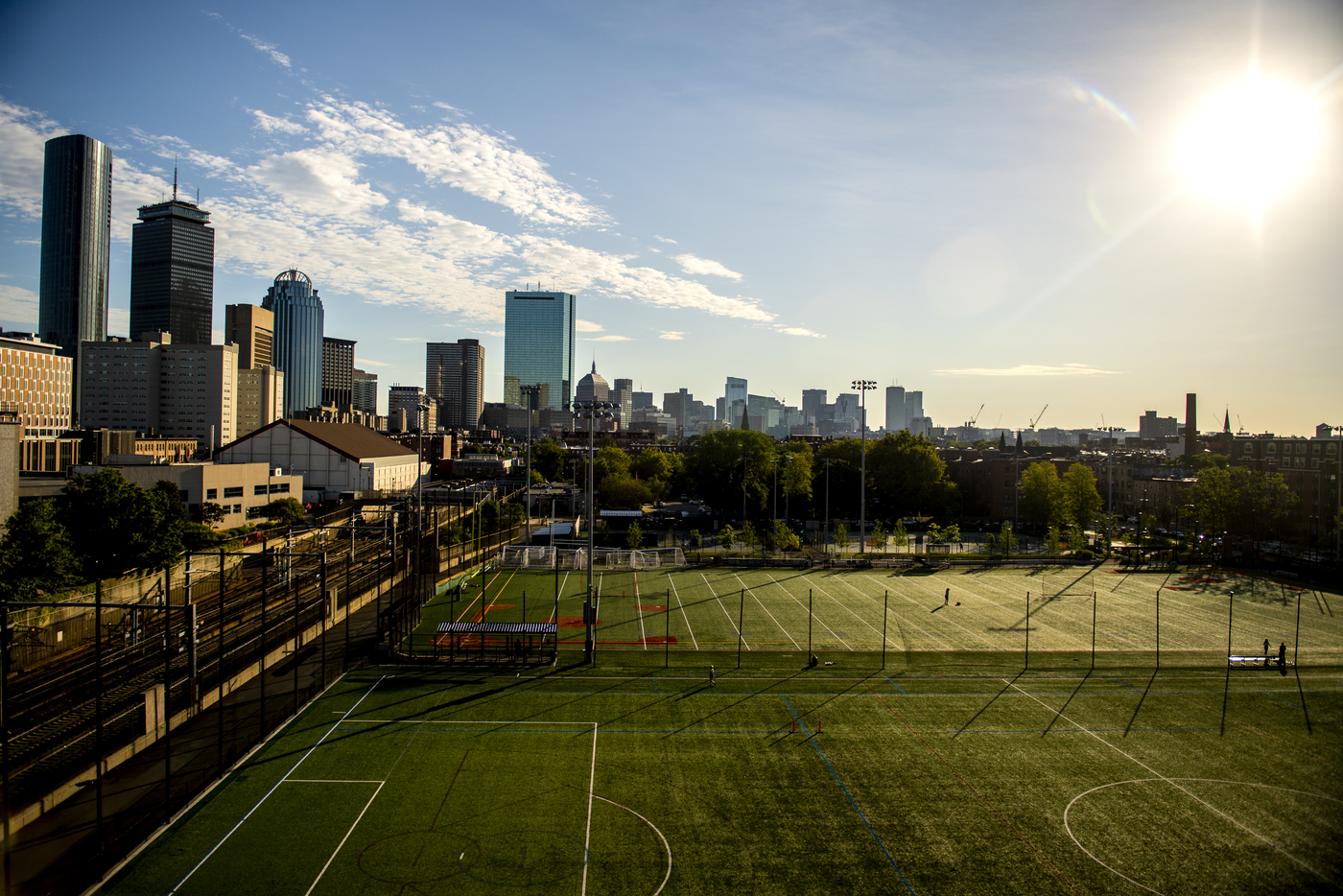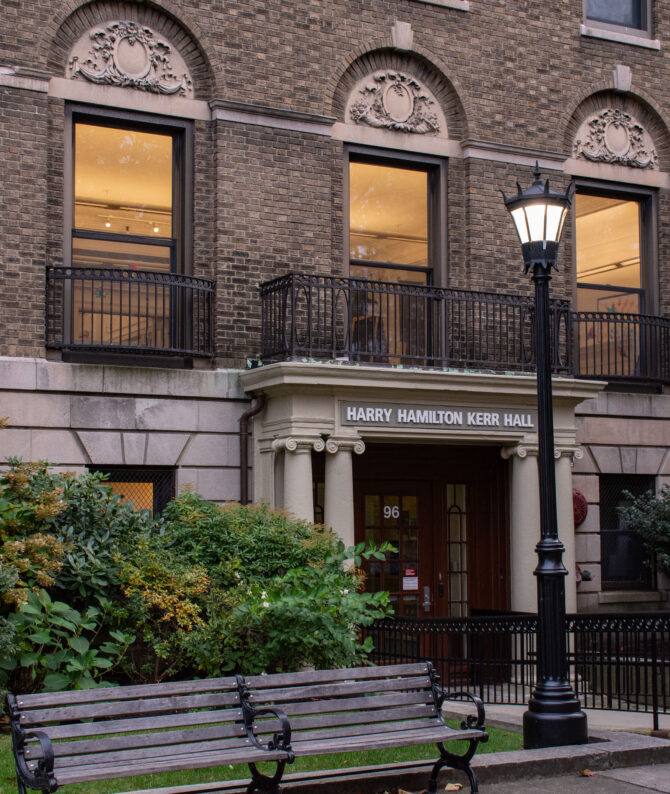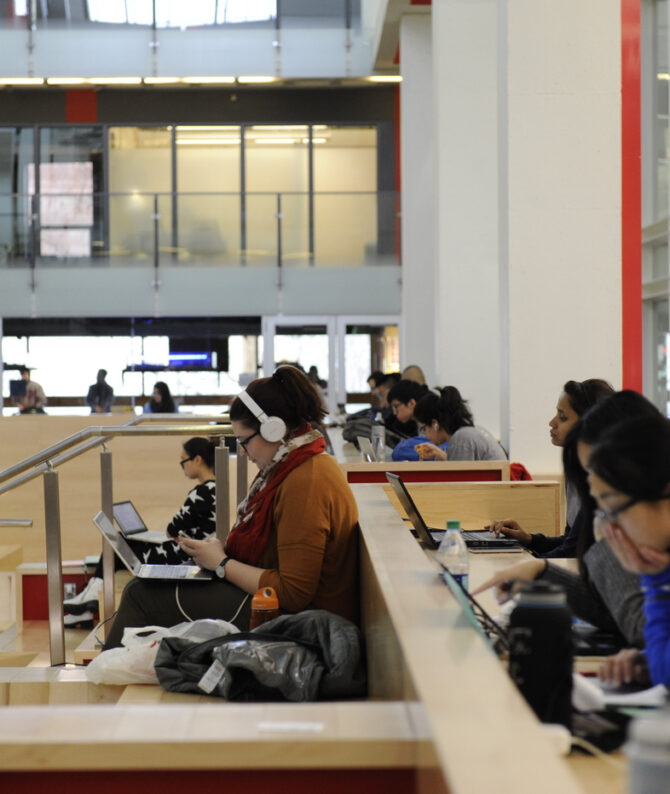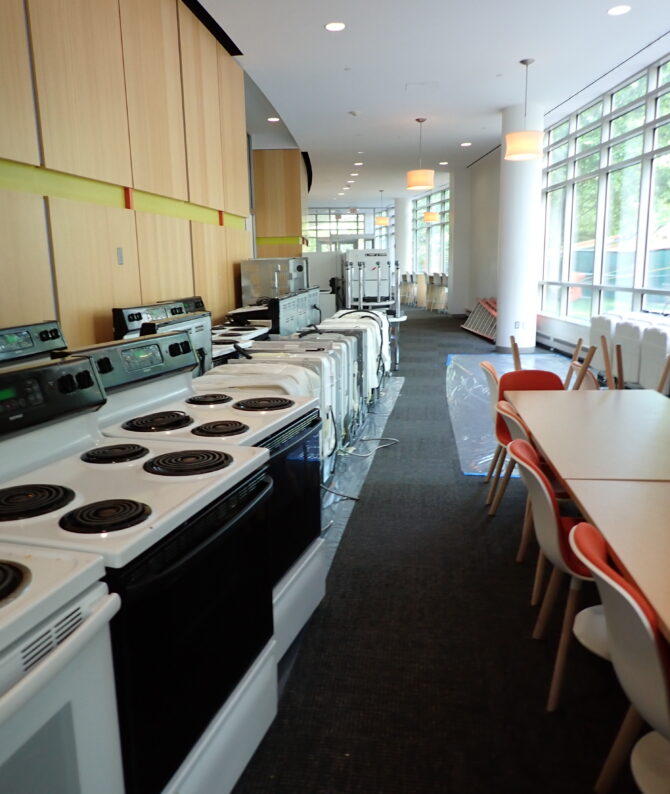Boston Climate Progress Report Nearing First Stage of Release

If a plan is created in a city and no one is there to evaluate it, does it really make a difference? Joan Fitzgerald, a professor of urban and public policy at Northeastern, doesn’t want to find out.
Late in 2021, Fitzgerald was named principal investigator for the Boston Climate Progress Report, a project commissioned by The Boston Foundation in collaboration with the Green Ribbon Commission. She brought on board fellow Northeastern professors Ted Landsmark and Kaitlyn Alvarez Noli to work with her.
Although the city of Boston outlines its climate plan goals and progress on their website, the Boston Climate Progress Report goes further. It aims to paint a bigger picture of all the different entities that affect the city’s climate policies such as the state government, federal policies, and utility companies. It also identifies the contradictions, missed opportunities, and other factors that slow or stall progress.
“Our analysis gets at that kind of interconnectivity that determines how fast Boston can move on different aspects of its plan that it needs to accelerate,” Fitzgerald said.
It’s also about being clear with the public about what the city is doing and how much progress still needs to be made in order to reach climate goals. “There is a public accountability and that’s partly what this report is about,” Fitzgerald said.
The report is evaluating two Boston climate plans. The first is the updated climate action plan done in 2019 which is focused on climate change mitigation. The second is called Climate Ready Boston, which is more focused on adaptation and resilience.
The original goal was to release their first report in November 2022, but the team quickly realized that more urgency was needed. They have decided that the report will be released in stages to get policy feedback out there faster.
“An important part of the audience is the city and getting the city to move, but we also want the state to change course in areas in which it is not supporting the city. We want the candidates for governor to look at it,” Fitzgerald said. “We also want our reports to be public facing documents so that people in the city can pressure government and other organizations and institutions to act more aggressively on climate goals.”
In the process of evaluating Boston’s climate action, Fitzgerald and her team have concluded that more needs to be done.
“Boston has done well making incremental changes, but what we need going forward is much more systemic transformation,” she said. “That is not going to be easy, and that’s the case that we’re making in this. It’s hard to find a pathway to get to where we need to be. It’s sobering.”
So, what needs to happen in order for Boston to reach its climate goals?
“We have to get fossil fuels out of buildings,” Fitzgerald said. “That means moving to air source heat pumps, ground-based heat pumps, district systems. Luckily, the state’s new climate bill will allow cities to ban fossil fuel hookups in new construction. But a big focus will have to be retrofitting existing buildings.”
“We’ve also got to electrify transportation, and that means all transportation, not just cars. We’ve got to do transit buses, school buses, trucks, the subway system, all of it.”
Fitzgerald also emphasized the need to adapt to the changes that we know are coming. “Sea-level rise is hitting New England faster than anticipated so we have to protect our coastline,” she said.
Without bold action in the short-term, there will be high prices to pay. “The consequences, if they don’t do what they set out to do on the adaptation side, is that subways flood, the seaport will flood, and various neighborhoods of Boston will be inundated, so that one’s a little more obvious.”
For the mitigation side of things, the consequences of inaction are less immediately obvious. Although failing to reduce greenhouse gas emissions in the near-term will result in enormous long-term repercussions, people often respond with more urgency to things they can see now. However, we are seeing increasing effects of climate change in our day to day lives, and that can move people to action.
Fitzgerald and her team are also prioritizing equity. “Equity has to be built into this,” she said. “It can’t just be about creating resilient rich neighborhoods… part of what we’re doing is working with a stakeholder committee – people who are active in environmental justice work in the city’s frontline neighborhoods – and having them say ‘here’s what it would look like for us, the people who are living in these frontline communities.’”
The first stage of the Boston Climate Progress Report is set to be released in the next month.
Written by Adam Doucette – 4/25/2022



